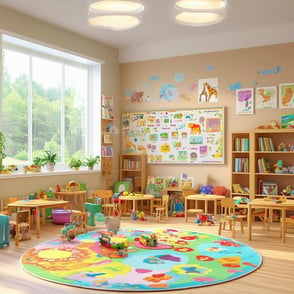As caring parents, we all want what’s best for our little ones especially when it comes to health and education. It’s natural that we’d want to know that our child is developing properly and not experiencing learning difficulties, particularly in Language. From the outset, it’s important to remember that children develop at their own rate. Some babies walk and talk earlier, while late bloomers take a while longer but catch up quickly.
That said, speech problems are a fairly common issue among children. Detecting these early on can save your child (and yourself) a lot of frustration. Furthermore, nipping the problem in the bud means you can find a solution to make the learning experience more enjoyable.
Here are a few tips to help you identify speech issues and take the appropriate action:
Take an Active Role in Your Child’s Language Learning
When it comes to language learning parents are often a child’s first teachers in their early years. Children learn to speak by listening to others and practising. Even babies notice when others respond to the noises they make. There are numerous ways parents can actively play a role in their child’s language learning – everything from interacting with the child’s and asking simple questions to read books and singing nursery rhymes. Being involved in these processes will allow you to keep a close eye on your child’s progress.
Think in Age Range Milestones
Each child will develop at their own pace and there are no hard and fast rules as to when they need to reach a certain milestone. For instance, children being raised bilingually won’t follow exactly the same developmental milestones as those learning just a single language. Regardless, being aware of the age range when children can normally be expected to exhibit certain behaviours associated with language learning is a good starting point. For example, you should expect to hear your child’s first word (or some semblance of it) between the ages of 12-18 months.
Avoid Comparisons
Bearing in mind that these milestone markers are very fluid, as parents we need to make a concerted effort not to compare our children to others around them. Each child is unique. While some may crawl or walk faster others will learn to communicate sooner. Comparing a child to their peers or your experience with their older siblings is likely to be highly counterproductive.
Language Development is Complex and Disorders Vary
Language development is complex so while some kids struggle with speaking (expressive language) others may have difficulty understanding what’s been said (receptive language) and following instructions. If you sense your child has trouble understanding the language it could be a sign or hearing loss whereas if they have trouble expressing themselves it could be a case of not knowing what words to use or how to put words together.
Seeking Help
If you feel your child is struggling with speech development, it is important to seek help from a healthcare provider. Language development specialists can conduct an assessment to determine the nature of the problem and advise you on the best course of action. Remember, not every case will be serious and in many instances, some simple exercises can iron out those issues but seeking help early is key.
Speech development is a process that won’t always be linear and you may experience some hurdles along the way. Taking an active interest in language learning will always give you an advantage when it comes to detecting any issues. If you sense there are any issues, be patient with yourself and your child and seek appropriate help to ensure a professional diagnosis. To learn more about Children's Early Development:
Tags:
Early Years
22-Sep-2020 11:00:00
Related Articles






Write a Comment